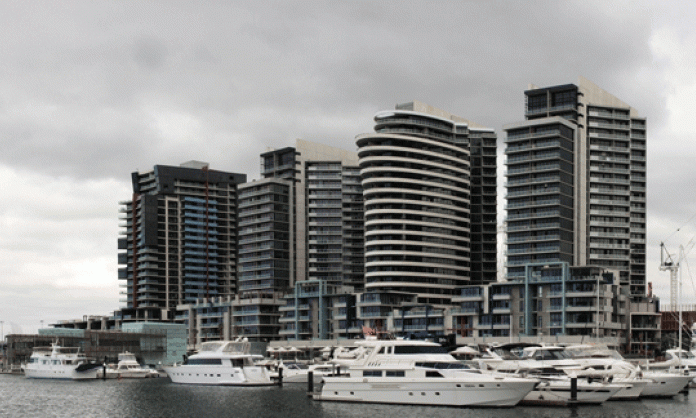Markets, according to conventional economics, are the only rational way to decide on the distribution of just about anything that isn’t provided by nature without effort by human beings – air, for example.
There was an element of truth in that idea in pre-capitalist and very early capitalist societies: people who had more than they needed of something could sell the excess and use the money to buy something they needed. But what conventional economics fails to recognise is how the development of capitalism has totally changed the character of markets.
A clear illustration of this point is contained in a report by Prosper Australia on the housing shortage, focused on metropolitan Melbourne. This demonstrates convincingly that the shortage is primarily caused by rental properties being withheld from the market for speculative reasons.
(Prosper Australia is an organisation following the ideas of Henry George, a 19th century US economist who argued that most of society’s socioeconomic problems could be solved by common ownership of land. Karl Marx, while recognising George’s good intentions, criticised his theory. But a false theory doesn’t necessarily prevent someone from doing useful research.)
Prosper’s report points out that the commonly used vacancy figures refer only to houses or flats advertised or otherwise put officially on the market. They thus leave out dwellings that could be occupied but aren’t because their owners have decided not to let them.
How to find the number of such dwellings? The Prosper researchers had the bright idea of checking on water consumption. If a flat or house used an average of less than 50 litres of water a day over a 12-month period, they reasoned, it must be unoccupied. (They point out that a tap with a slow leak can use 50 litres a day.)
In this way, they found more than 64,000 vacant dwellings and more than 29,000 vacant commercial premises. This is at a time when supposed shortages of buildings are driving up rents and increasing homelessness. The 2011 federal census recorded 22,000 homeless people in Victoria. The Age (28 July) reported that St Vincent de Paul has 547 people on its waiting list for housing in inner and north-west Melbourne alone, and that the number is increasing by 30 per month.
The reasons for these vacancies are several and complex in the details but simple and straightforward overall: there is more money to be made from buying buildings and waiting for their price to rise than there is from letting the same buildings to tenants. Prosper is correct that different state and federal tax laws could modify this situation, but that is not likely to happen; the report notes that 94 percent of federal MPs own investment properties of a combined total value of $300 million.
In any case, such tax changes would alter only the details of how capitalist speculation is conducted; they would not do away with it. Politicians pass laws that reward speculation because that’s what capitalists want them to do. Capitalists want them to do it because it has become increasingly difficult in Australian and world markets to make large enough profits by producing things. The speculation is market-driven.
So when the Prosper report says “The housing market must respond in a timely manner to homebuyer rather than speculator demand”, Marxists reply that that is, unfortunately, a pipedream. It is inherent in markets that they respond, not to social need, but to effective demand – that is, to the largest amounts of money.
To make markets behave differently would be to make them, to that extent, cease to be markets. To remove markets as the regulators of social life is the goal of socialists, but it will become possible only when the political power of the capitalists has been overcome.









